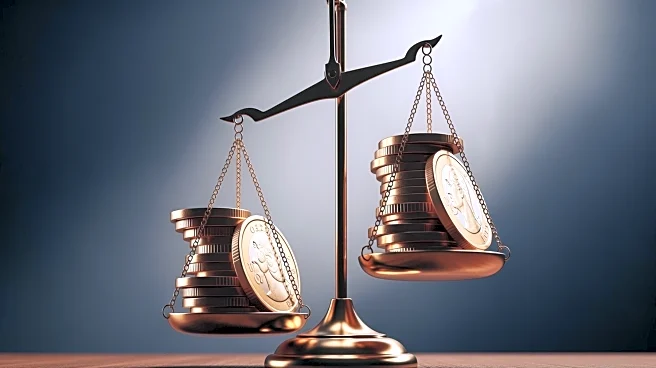What's Happening?
The U.S. national debt has reached a record $38 trillion, just two months after hitting $37 trillion, as the government navigates a federal shutdown. This marks the fastest single-year accumulation of
$1 trillion in debt outside of the COVID-19 pandemic. Treasury Secretary Scott Bessent reported a cumulative deficit of $468 billion from April to September, the lowest since 2019, attributing this to reduced spending and increased revenue under the Trump administration. The rapid debt increase has prompted concerns about economic stability, borrowing costs, and long-term impacts on American citizens.
Why It's Important?
The accelerating national debt raises urgent questions about America's fiscal health and the sustainability of current federal policies. Rising debt could affect mortgage and car borrowing costs, wages, and the cost of living for Americans. Lawmakers and fiscal experts are debating the need for reforms as the debt trajectory continues to accelerate at record speed. Interest costs are now the fastest-growing part of the budget, potentially crowding out important public and private investments, which could harm the economy for every American.
What's Next?
Policymakers will face increasing pressure to devise long-term fiscal reforms as interest payments on the debt will likely take precedence over essential public investments. The debate is expected to intensify as lawmakers weigh the necessity of controlling spending against the challenges of funding existing commitments such as Social Security, Medicare, and defense. The circumstances around reaching the debt ceiling and the broader issue of fiscal sustainability are expected to remain dominant issues in the coming months.
Beyond the Headlines
The rapid debt accumulation during a government shutdown highlights the dysfunction in fiscal policy and the need for comprehensive reforms. The increasing debt and interest costs could lead to significant economic challenges, including reduced public investments and higher costs for future generations. The situation underscores the need for lawmakers to address fiscal sustainability to ensure long-term economic stability.










